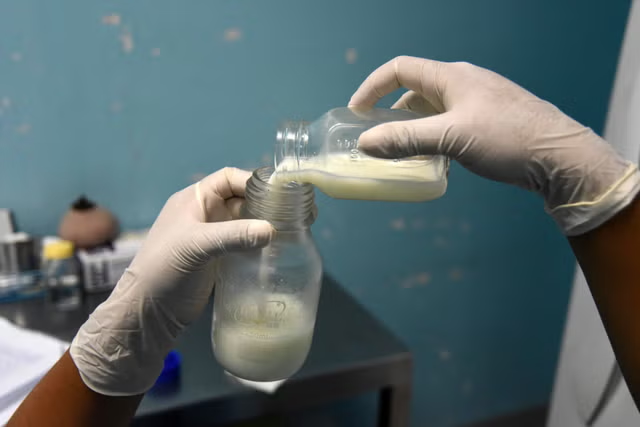Colorado health officials have confirmed a fourth human bird flu case, with a fifth also suspected, the U.S. Centers for Disease Control and Prevention (CDC) said.
Highly pathogenic avian influenza (H5N1) is an infectious viral illness that spreads primarily among wild and domestic birds. But the virus that causes bird flu can sometimes jump into animals, including dairy cows and, in some cases, humans.
A "multi-state outbreak" of the virus has emerged among dairy cattle since mid-March, according to the CDC, and four human cases have been confirmed following exposure to dairy cows. However, the latest cases in Colorado were among poultry workers.
More From Newsweek Vault: Compare the Top Health Savings Account (HSA) Providers
"It is rare for avian influenza to infect humans," Carl Abraham, an assistant professor of medicine at the New York Institute of Technology, previously told Newsweek. "Persons who own birds that come into contact with wild birds and cattle farmers are at most risk to come into contact with bird flu, but the risk of illness in those persons is still negligible."
More From Newsweek Vault: What Is a Health Savings Account?
In the latest string of cases, all those infected were working at a poultry farm in northeast Colorado and had direct contact with the infected birds. According to health officials, the symptoms for all four patients have been mild, including itchy, red eyes, fever, coughing, a sore throat and a runny nose.
At this point in time, the CDC says that bird flu still does not pose a significant risk to the general public. However, it warns that the virus does have potential to cause "severe disease" in humans. The virus could also evolve to become more efficient at spreading between humans, which could "trigger a pandemic" in the future.
Health officials are investigating whether the genetic sequence of the virus has changed since previous cases, and whether these genetic changes show signs of increasing transmissibility in humans.
For now, the CDC recommends the following actions to keep yourself safe from bird flu:
- Avoid direct contact with wild birds.
- Report sick or dead birds to your local authority.
- Avoid unprotected direct physical contact or close exposure to cattle.
- Avoid unprotected exposure to animal poop, bedding and unpasteurized raw milk.
- Workers in dairy and poultry industries should wear personal protective equipment while working with animals.
Is there a health problem that's worrying you? Do you have a question about bird flu? Let us know via health@newsweek.com. We can ask experts for advice, and your story could be featured in Newsweek.
Disclaimer: The copyright of this article belongs to the original author. Reposting this article is solely for the purpose of information dissemination and does not constitute any investment advice. If there is any infringement, please contact us immediately. We will make corrections or deletions as necessary. Thank you.



